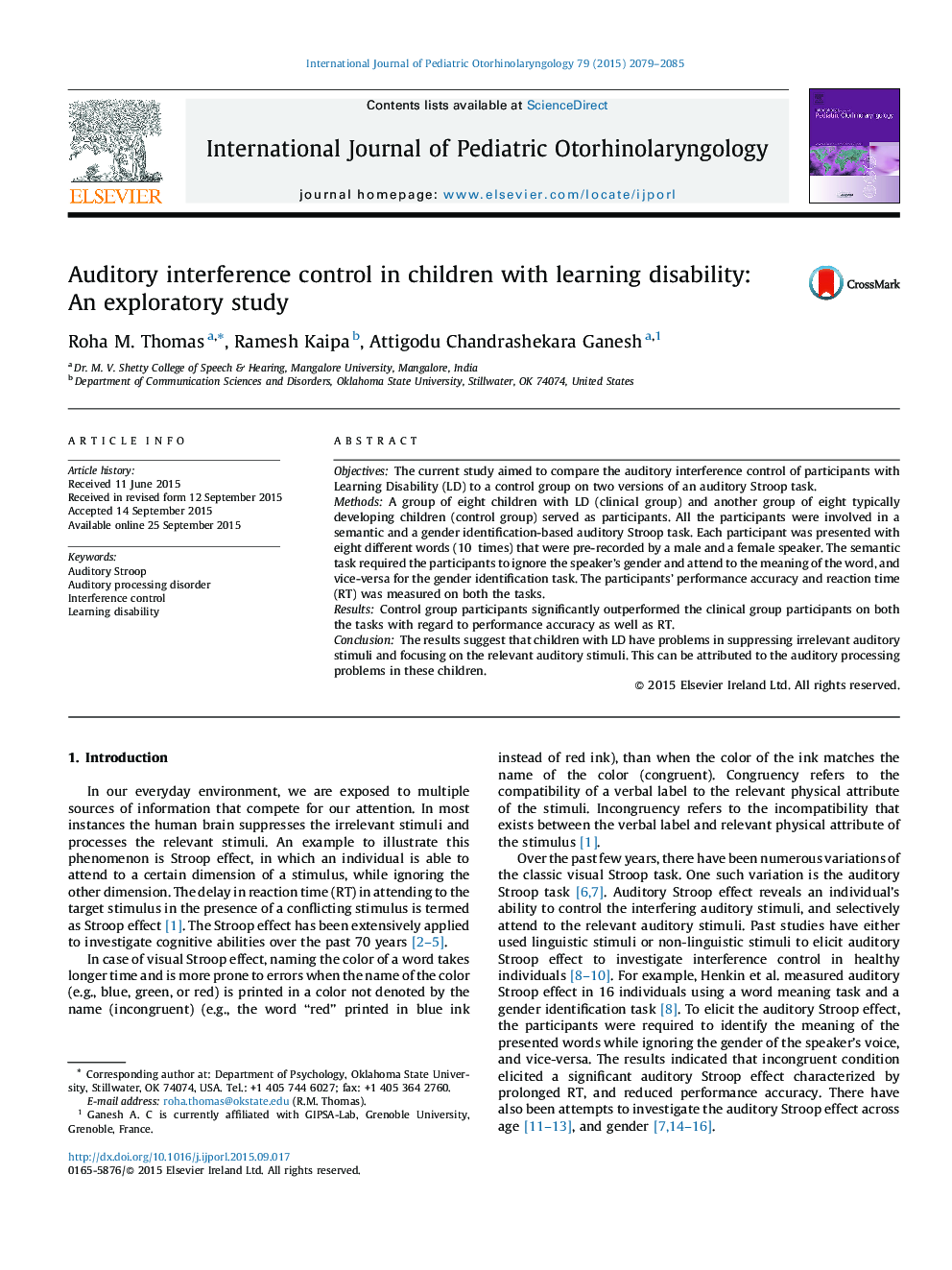| Article ID | Journal | Published Year | Pages | File Type |
|---|---|---|---|---|
| 4111563 | International Journal of Pediatric Otorhinolaryngology | 2015 | 7 Pages |
ObjectivesThe current study aimed to compare the auditory interference control of participants with Learning Disability (LD) to a control group on two versions of an auditory Stroop task.MethodsA group of eight children with LD (clinical group) and another group of eight typically developing children (control group) served as participants. All the participants were involved in a semantic and a gender identification-based auditory Stroop task. Each participant was presented with eight different words (10 times) that were pre-recorded by a male and a female speaker. The semantic task required the participants to ignore the speaker's gender and attend to the meaning of the word, and vice-versa for the gender identification task. The participants’ performance accuracy and reaction time (RT) was measured on both the tasks.ResultsControl group participants significantly outperformed the clinical group participants on both the tasks with regard to performance accuracy as well as RT.ConclusionThe results suggest that children with LD have problems in suppressing irrelevant auditory stimuli and focusing on the relevant auditory stimuli. This can be attributed to the auditory processing problems in these children.
